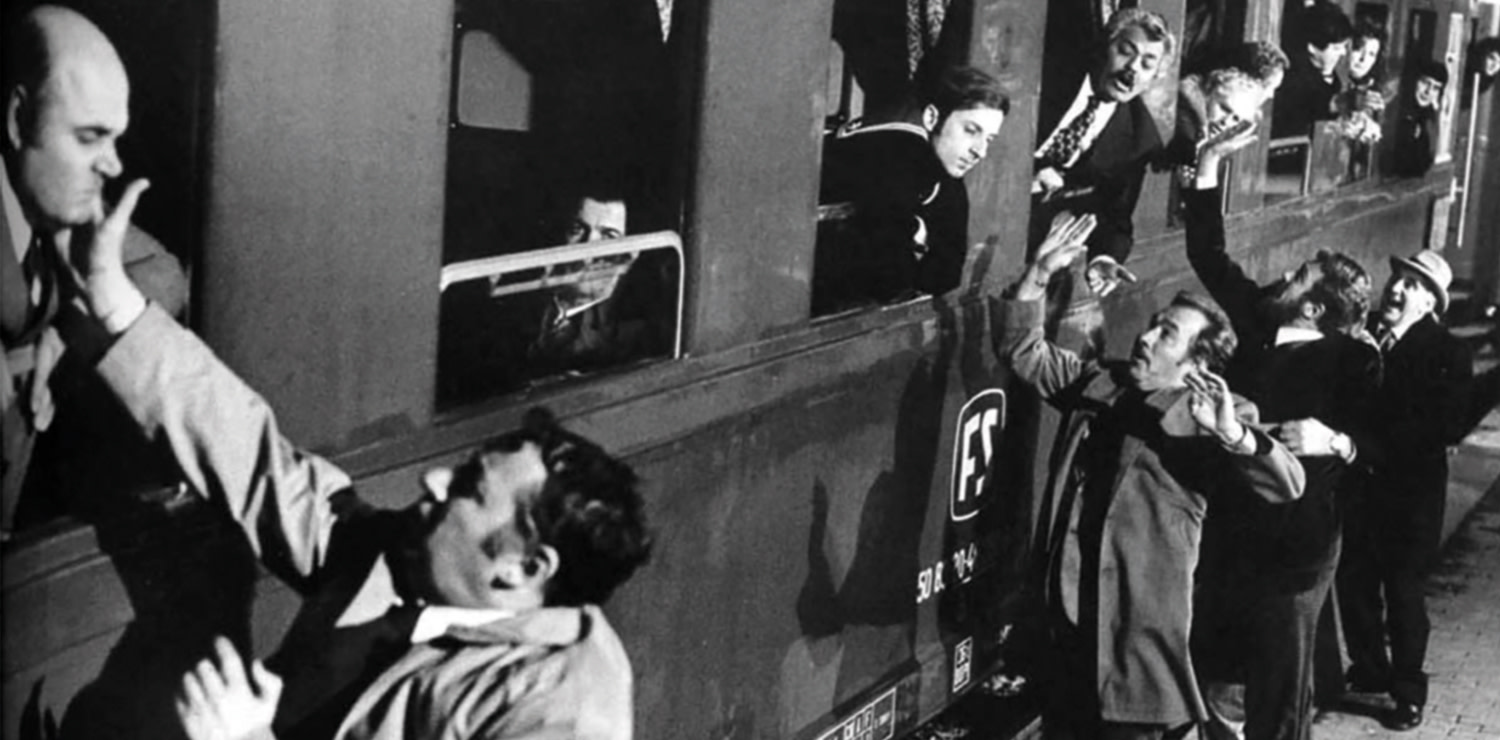Umberto Cecchi (the "Cecchi of Prato") tells us about the backstage of the film "Amici miei"
Here is what Umberto Cecchi writes about the legendary film set in the Florence of forty years ago
An old editor-in-chief of an Emilian newspaper, Ernesto Ragazzoni, defined by many as a good humorist, wrote many years ago the most beautiful and bitter synthesis of the end of a day's work at the newspaper. Here it is: 'The newspaper is printed / the press is rushing / I'm leaving with my lapel up / behind the smoke of a cigarette'.
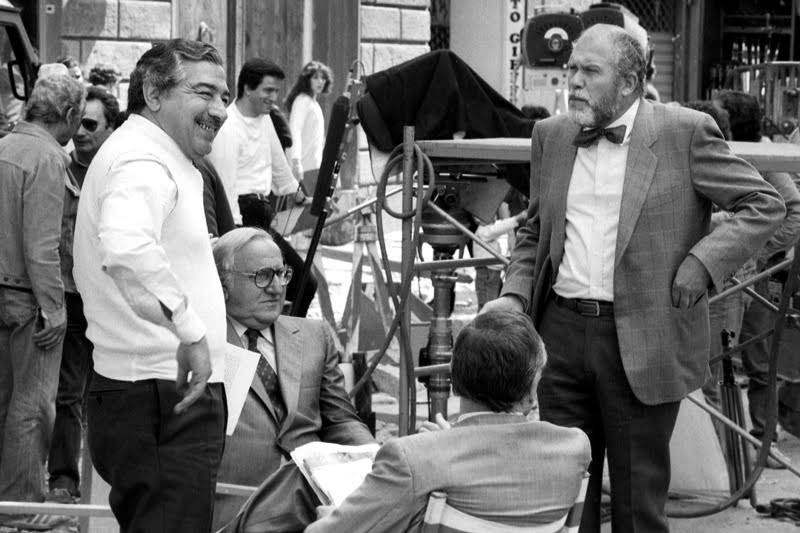 Renzo Montagnani, Adolfo Celi, Gastone Moschin, Philippe Noiret on the set of Amici miei - Atto II, 1982. Ph. © Archivio Foto Locchi
Renzo Montagnani, Adolfo Celi, Gastone Moschin, Philippe Noiret on the set of Amici miei - Atto II, 1982. Ph. © Archivio Foto Locchi
It is, anticipated by many decades, the bitter and distressing beginning of 'Amici Miei'. Late at night, a cappuccino at the bar where Perozzi, the disheveled editor-in-chief, improvises himself as a crier and distributes the newspaper, just out, to the whores who are relaxing after a long evening of work. Back in the day, that ringleader gave me the creeps. Like today, for that matter. What to say. How many days have I ended up like this, in a natural nighttime zingarata with friends and colleagues like Riccardo Berti and Piero Gherardeschi: stopping at the Borgognissanti bakery for a freshly baked croissant; reconnaissance at the airport, which one night we found open and deserted and with a homeless man sleeping in the ATR on the runway, and whom we managed to wake up only by shouting at the fire. And how many times, finding a fire truck along the deserted roads, did we turn around and follow it into the unknown. One night, on our way home, Piero Gherardeschi and I found a car stopped with its headlights on in the middle of the road.
Headlights on, in the middle of the road, three dead people. We didn't go to bed.
Were they gypsies? No: it was a profession to which no one today, times having changed, pays due respect or understands being nostalgic. That was the beauty of it: before becoming editors or special correspondents, we had been reporters.
'Amici Miei' was born at 'La Nazione', and I entered the film by nominally appearing in the large layout room, where the newspaper was prepared every night. A colleague, Sandro Bugialli, who was editor of the cultural pages - which still existed at the time - arrived in a hurry and told the editor-in-chief: "Cecchi from Prato called, there's been a terrible accident"... That was me. And when I saw the film, I felt a deep, absolute sadness: for Perozzi, who tries to forget his life by taking refuge in liberating escapes, the so-called 'zingarate' with a group of friends who are just as disappointed, embittered, alone. Four fleurs du mal, which then become five. Fierce in their jokes only as a Tuscan can be.
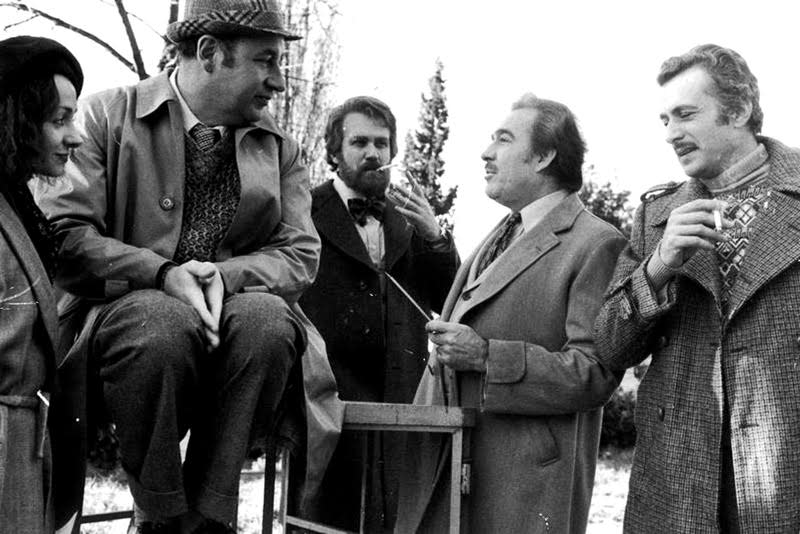 Scene from the cult film 'Amici miei' directed by Mario Monicelli in Florence Ph New Press Photo
Scene from the cult film 'Amici miei' directed by Mario Monicelli in Florence Ph New Press Photo
Moncelli makes a masterpiece of costume, staging the most cynical and cold irony, giving - as always in his works - a strong value to the friendship thanks to which he keeps together a group of misfits each of whom is looking for himself without ever finding himself: Mascetti has lost his patrimony and a place among the nobles; Perozzi has lost his dream of a regular life, of a family; Necchi, a bartender in Piazza Demodoff, has lost his serenity, obsessed by sex; Sassaroli is overwhelmed by the boredom of his profession and his family, a compressed dog, which he hands over completely to Melandri, an architect disappointed in his work and anxious for love. It's a film about the things you don't have, the lost things; about 'nostos', Ulysses' nostalgia for an Ithaca he can't find.
Many of the stories told also come from 'La Nazione': the most famous one, the slapping of travelers on the train, was told to me in the early 1970s by my colleague Bacher, then a legendary night reporter.
Then a legendary night reporter. He was the one who had experienced it: a group of night owls, young swarmers who slapped the departing passengers. By the way, Bacher had Mascetti's car: an American car that crackled at every meter. We could hear him coming from afar with the 'briefs' of the night.
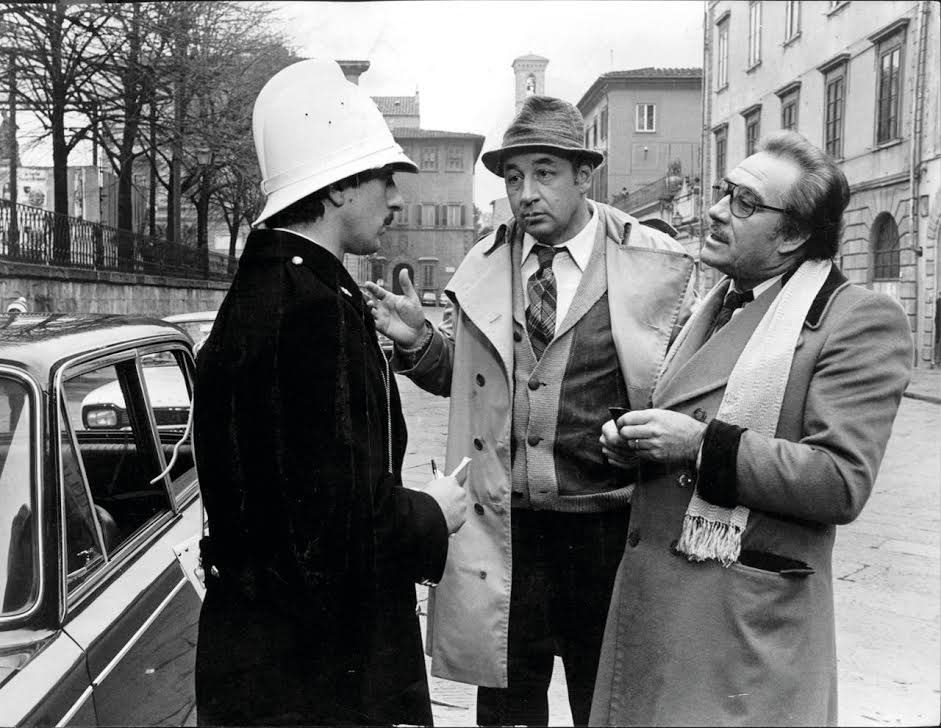 Scene from the cult film 'Amici miei' directed by Mario Monicelli in Florence Ph New Press Photo
Scene from the cult film 'Amici miei' directed by Mario Monicelli in Florence Ph New Press Photo
Monicelli makes a film of customs that today for those like me becomes a regret: the Florence of those years was profoundly different. More on a human scale. Fewer tourists, fewer cars, nights with absolutely no 'movida'. Even clean. Try today, as Perozzi does, to slalom with your car in Piazza Santa Croce. To run through absolutely deserted streets, without traverses, tourists, drunk American students defecating on the sidewalks. Ready to organize fake shootings in the nothingness where today there is the Mandela Forum.
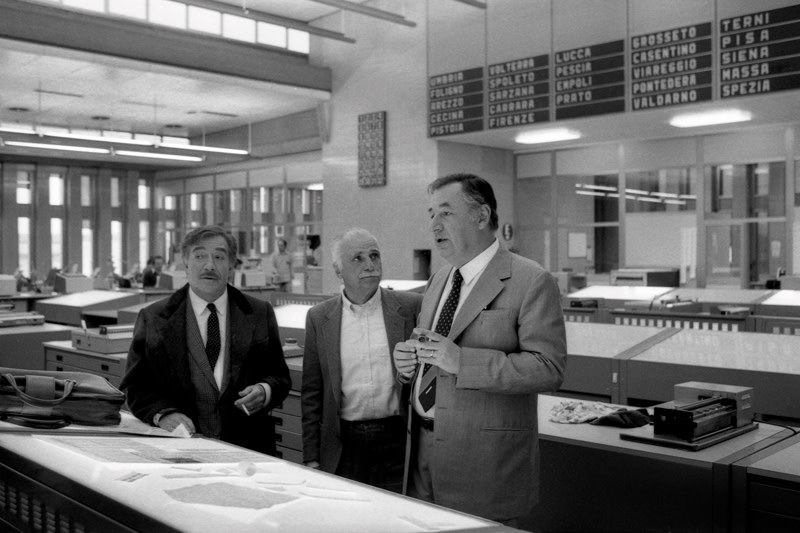 Ugo Tognazzi, Mario Monicelli, Philippe Noiret at ‘La Nazione’ in Florence 1982
Ugo Tognazzi, Mario Monicelli, Philippe Noiret at ‘La Nazione’ in Florence 1982A 'cult' film, not to be seen again in the evenings of melancholy but absolutely unmissable, which closes the 'day' with the last gypsy: the death of Perozzi and a funeral where the farce continues, where the funeral march is marked by the bom bom bom bom of the four remaining, on the rhythm of their usual song, accompanied by jokes and fierce jokes. And the deceased who, before being such - agnostic as he is - makes the priest clear and confesses by giving him the story of the 'supercazzola', a glottological catchphrase used by the five in the most diverse moments. To confuse and mock whoever comes within their reach. Traffic policemen and others. And the 'supercazzola' is basically the key to understanding a lost, beloved childhood that they are trying to rediscover: a scurrilous childish language borrowed from adults who never wanted to grow up.
More than one critic has written that Perozzi's funeral is 'excessive': of an improbable cynicism and irony. I find it of an absolute Tuscan classicism: I was seriously ill in the hospital in Arezzo when four friends came to visit me: an undersecretary of State, a chief physician, a mayor and a funeral director of the Misericordia. In a row at the end of the bed they looked at me ironically while the mortician took my measurements, explaining to me: 'for the coffin. You know, lying in bed you get longer'. I made them chase me away with the last edge of my voice.
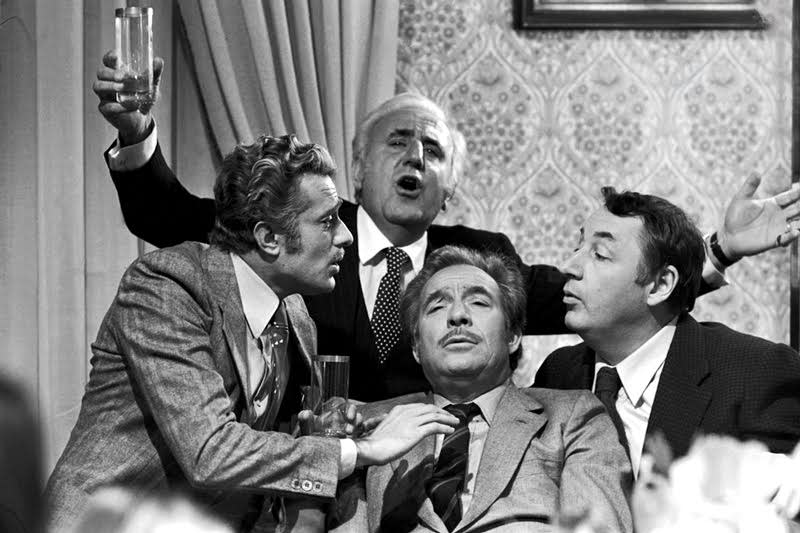 Scene from the cult film 'Amici miei' directed by Mario Monicelli in Florence Ph New Press Photo
Scene from the cult film 'Amici miei' directed by Mario Monicelli in Florence Ph New Press Photo
This is the Tuscan mockery. That of Machiavelli in 'Madragola' or Boccaccio in 'Decameron'. Where the joke comes to an exasperated cynicism, fierce, cruel, yet without malice. Just playful. This is the life breviary of the five that Monicelli, based on an idea by Pietro Germi, gave to Italian cinema. Five creatures that are the result of models that really existed and that today are the model for the 'Amici miei' of our time. However, they have never been able to match the spontaneous, painful, bitter and creative
search for life of those magnificent five waifs in search of a moral that they do not find. That they don't have.






